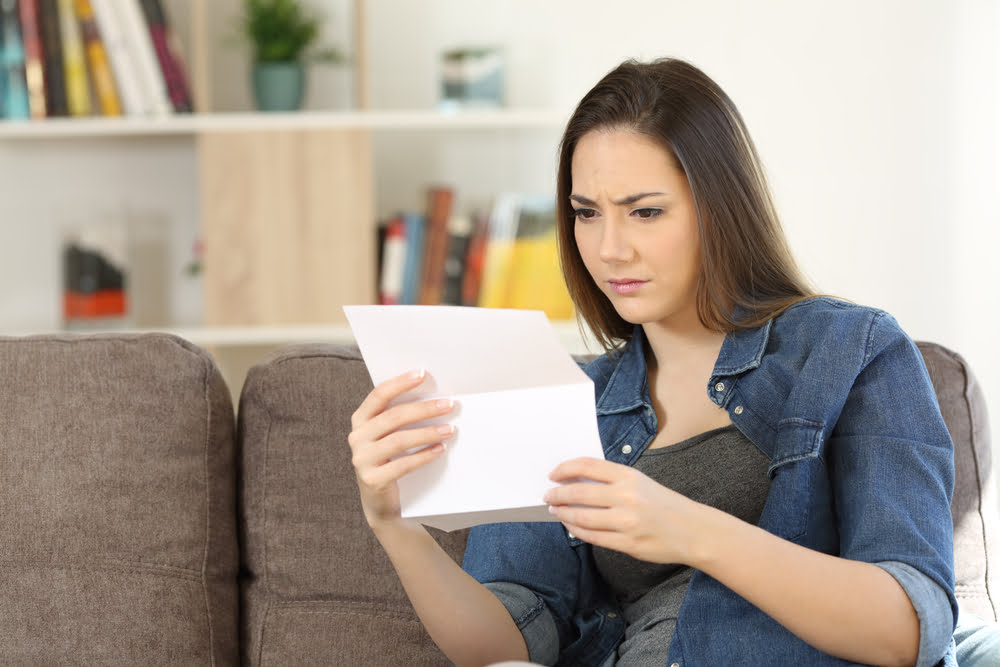
Can Bankruptcy Stop Eviction?
Many renters who have faced temporary money troubles and have fallen behind on their rent may be able to use bankruptcy to stop their eviction. However, the stay granted by bankruptcy is only temporary. And in some cases, an attorney representing that landlord may be able to get the stay lifted.
But you’ve bought yourself some time, which you can use to organize your move or to make the arrangements necessary to repay the back rent that may be the reason for your eviction in the first place.
It’s Important to Act Quickly
One of the best things about bankruptcy is that, if you’re in an emergency situation, the automatic stay will stop eviction proceedings against you. The problem for a lot of folks is that they don’t act quickly enough. If the court has already granted the eviction, filing for bankruptcy won’t help. It can, however, allow you to discharge the remaining debt owed on the lease.
The key is to move quickly. A Dallas bankruptcy attorney can help you to buy yourself some time, keep your rental until you can repay the delinquent rent, or file for bankruptcy to discharge the rent that you have no way of paying right now.
You Must Continue to Pay Rent
Filing bankruptcy will not free you from paying rent. It is advisable to continue paying rent while you are filing bankruptcy because if you fall behind on your rent payments while you are in bankruptcy, then your landlord will automatically have the right to proceed with the eviction.
Bankruptcy Will Stop Eviction Only If Your Landlord Has Not Won an Eviction Order by the Time You Filed
If the debtor is delinquent on their rent, but the landlord has not won an eviction order by the time the debtor has filed for bankruptcy, then the automatic stay will stop the eviction.
In this case, the landlord is considered (by the court) to be a creditor while the tenant is considered a debtor. Eviction is thus the action of a creditor against a debtor to reclaim possession of a property. Timing is thus crucial. If the landlord has already won the eviction hearing and an eviction is imminent, the tenant loses their chance to stop the eviction in bankruptcy. The eviction will proceed regardless of whether or not the tenant’s bankruptcy is granted.
What If Your Landlord Wins an Exemption From the Automatic Stay?
Once you file bankruptcy, all creditor actions against you must stop immediately because of the automatic stay. This includes evictions. However, the attorney who is representing the landlord can file for relief against the automatic stay.
Your Landlord May Be Able to Evict You If They Win an Exemption
The landlord may be able to win an exemption from the automatic stay. If the landlord wins an exemption from the automatic stay, they will be able to evict you even though you are in bankruptcy. Before you file bankruptcy, talk to your bankruptcy attorney about the possibility of the landlord winning an exemption from the automatic stay. And even if your landlord is allowed to evict you during your bankruptcy, you may still be able to discharge your back rent obligations through bankruptcy.
What Your Landlord Will Have to Prove
In cases where they do bring a motion to lift the automatic stay, they will need to show one of the following:
- Illegal behavior occurred on the property. If the landlord can show that illegal activity (such as drug use or manufacture) occurred on the property, then that is a violation of a lease agreement and has nothing to do with whether or not you owe money, then the eviction can proceed as planned so long as the landlord has moved to lift the automatic stay.
- If you have destroyed the landlord’s property or otherwise violated the lease. Bankruptcy only has aegis over creditor actions. If the landlord wants you off the property for any other reason other than delinquent rent, they will easily be able to lift the automatic stay against you, but they must show cause. In other words, they can’t use some lease violation as a pretense to lift the automatic stay. They must prove that a lease violation existed.
- If you can repay back rent. In cases where you cannot or have no intention of repaying the delinquent rent, the court will probably allow the eviction to proceed regardless of whether or not you’ve filed for bankruptcy. This is because the bankruptcy has no impact on the eviction proceedings if you don’t intend to repay the debt. It can simply be wiped out in Chapter 7.

Chapter 7 Bankruptcy vs. Chapter 13 Bankruptcy
Chapter 7
Filing for Chapter 7 bankruptcy shows the court that you intend to discharge whatever debt you owe the landlord. If you’re hoping to stay where you are, this is not the ideal solution. If your intention is to discharge the debt, then the court will probably allow the eviction to proceed regardless of whether it’s in process or it has any reason to do so. Knowing that you don’t intend to repay the debt is enough reason to lift the automatic stay. That being said, you will not have to repay the delinquent balance regardless of what your lease says. If your lease holds you responsible for the entirety of the rest of the year, that money will be discharged in Chapter 7.
Chapter 13
If you file for Chapter 13 bankruptcy, you have made an obligation to the court that you will attempt to repay your delinquent balances via a repayment plan over the next three or five years. In cases where you qualify for Chapter 7 but elect to file for Chapter 13, there may be other benefits to doing so. Under Chapter 13, however, you are telling the court that you are going to repay most or some of your debt over the course of the repayment plan and this might be good enough reason for the court to stop the eviction in its tracks.
Understand, however, that if you miss a payment or the Chapter 13 bankruptcy agreement is otherwise broken, the landlord can again initiate eviction proceedings against you.
Texas Laws Regarding Delinquent Rent
Texas laws heavily favor the landlord in eviction proceedings. Landlords can issue a three-day notice to remedy or quit the lease in the event that the tenant has not paid their rent on time. If the tenant does not respond within three days or does not pay the past-due balance, then landlord can then begin the process of eviction. In this case, it is imperative that you act fast.
While Texas’ landlord laws may not be very friendly to tenants, however, its bankruptcy laws are some of the most favorable to debtors. Act quickly, and you may be able to stabilize your situation.
Negotiating a Settlement With the Landlord
You may be able to work with your bankruptcy attorney to negotiate a settlement with the landlord that will allow you to remain in your apartment or rented home. This settlement will most likely require that you pay back rent, plus any penalties and interest and that you remain current on your rent payments. However, if you are filing Chapter 7 bankruptcy and have no income, it is unlikely that a landlord will be willing to negotiate with you and allow you to remain in their property.
Talk to a Dallas Bankruptcy Attorney Today
For most folks, knowing their rights when it comes to eviction is half the battle. Once you understand what bankruptcy can and cannot do, you can make better decisions from there. If you need to file for bankruptcy, Allmand Law Firm PLLC can help. If you’re facing an eviction, contact us to discuss your options. We offer a free 1 hour consultation and would be more than happy to answer your questions.